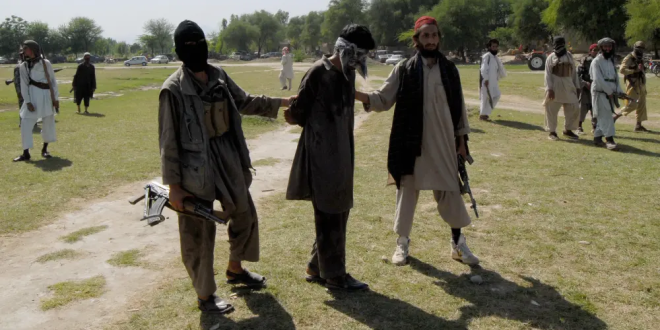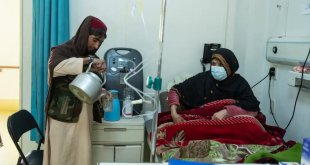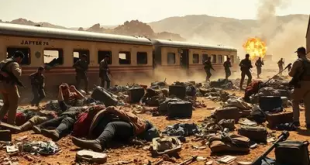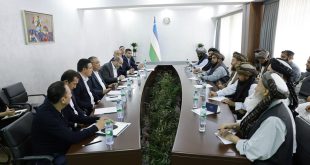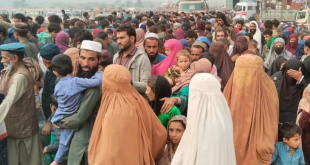KANDAHAR — In a rare and defiant public statement, Taliban Supreme Leader Hibatullah Akhundzada has strongly defended the use of public executions, calling them a necessary part of Islamic governance, just days after four men were shot dead in sports stadiums across Afghanistan.
The four executions on Friday — carried out in front of spectators — marked the highest number conducted in a single day since the Taliban reclaimed power in 2021. The Afghan Supreme Court said the men had been convicted of murder and were sentenced to death after the victims’ families refused to grant amnesty.
International condemnation quickly followed. Human rights organizations and the United Nations slammed the public killings, warning they violate international legal norms and underscore the Taliban’s increasingly harsh rule.
But in an audio address released Sunday by Taliban spokesman Zabihullah Mujahid, Akhundzada brushed off the criticism. Speaking during a seminar for Hajj instructors in Kandahar, he said:
🗣️ “We must carry out disciplinary measures, perform prayers and acts of worship. We must enter Islam completely. Islam is not just limited to a few rituals; it is a comprehensive system of all divine commands.”
He emphasized that no Islamic command should go unfulfilled and that enforcing divine punishments is a religious obligation. “We did not fight for power or wealth,” he said. “We fought to implement Islamic law.”
The remarks come at a sensitive moment for the Taliban government, which has sought increased engagement with the West and the broader international community. Last month, the U.S. lifted bounties on three senior Taliban figures, including Interior Minister Sirajuddin Haqqani, signaling cautious diplomatic overtures. The Taliban has also released four American nationals from custody this year, calling it part of the “normalization” of ties.
However, Akhundzada’s statement may jeopardize those efforts, reinforcing the group’s resistance to Western norms and insistence on strict interpretations of Sharia law. His rejection of criticism over the executions signals a widening chasm between the Taliban and international expectations on human rights and justice.
 Afghanistan Times
Afghanistan Times
